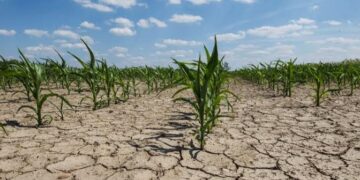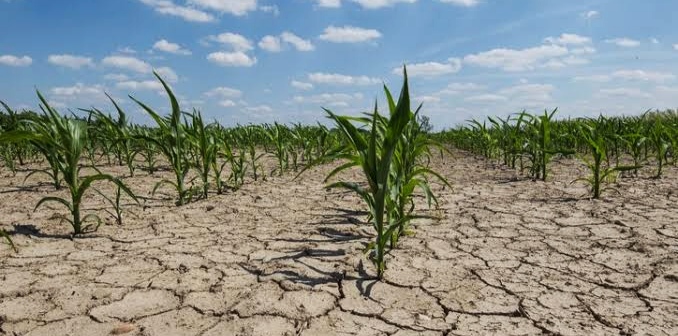By John Ikani
The President of the UN’s desertification conference has issued a warning that the world is on track to experience significant disruptions in food supplies even before temperatures reach the 1.5C target.
Alain-Richard Donwahi, a former Ivory Coast defense minister who helmed last year’s UN Cop15 summit on desertification, stated that the interplay between the climate crisis, water scarcity, and inefficient agricultural practices poses a grave threat to global agriculture.
He cautioned that the effects of drought are unfolding at an unexpectedly rapid pace. He drew a parallel between climate change and a pandemic, stressing the urgency of action.
“Climate change is like a rapidly spreading pandemic that we must combat urgently. The rate of climate degradation is outpacing our predictions,” he emphasized.
“While the 1.5°C target is crucial, we mustn’t overlook the looming risks of soil degradation, water scarcity, and desertification – challenges that could emerge well before we hit the 1.5°C mark.”
The repercussions of elevated temperatures, heatwaves, and intensified droughts and floods have placed food security in numerous regions at risk, Donwahi warned. He shed light on the broader impact of droughts, which extends beyond temperature.
“Consider the cascading effects of droughts on food security, population migration, and inflation. Negative consequences could escalate faster than the temperature rise,” he explained.
Donwahi singled out detrimental agricultural practices as a contributing factor. “Improper farming methods are compounding the issue. Soil degradation often stems from poor habits and unsustainable agricultural practices. When the soil’s health is compromised, so is its yield,” he pointed out.
In a call to action, Donwahi urged private sector investors to step in and capitalize on opportunities that offer mutual benefit. “The private sector has a stake in agriculture and sustainable soil management.
We’re talking about maximizing yields and exploring approaches like agroforestry, which can yield returns for the private sector,” he stressed. “We must foster innovation and devise fresh financial avenues.”
The global commitment to combat desertification dates back to 1992, when governments worldwide signed a treaty alongside the UN framework convention on climate change and the UN convention on biodiversity.
Despite its importance, the desertification treaty often garners less attention. Last year’s Cop15 conference on desertification received limited notice compared to the high-profile climate Cop27 and biodiversity Cop15 held in December. Notably, desertification conferences occur less frequently than climate summits.
The upcoming desertification conference is scheduled for Riyadh in December 2024, while Cop28, the next climate summit, will convene in Dubai in late November.
Donwahi stressed that overlooking desertification is not an option. “We must tackle these challenges collectively. Desertification and droughts are interconnected with climate change and loss of biodiversity. Climate change gives rise to droughts, floods, and storms,” he cautioned.
He emphasized the global nature of the issue, asserting, “Food security is a concern for all, not limited to just the economically challenged nations. Climate change, droughts, storms, and floods transcend borders – they don’t require visas to impact a country.”

































